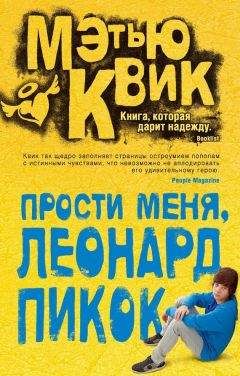Stuart Kaminsky - The Dog Who Bit a Policeman
“Then,” said Yaklovev, “I can see no reason to hold any of you.
Yulia Yalutshkin, you can go into the outer office where Pankov, my assistant, will provide you with a pen and paper to write the list of your clients. If the list is not complete, I shall have to review your version of events very carefully.”
“It will be complete,” said Yevgeny Pleshkov.
“In that case, Yulia Yalutshkin, you may go in the outer office and begin making the list. You may smoke there if you wish. Oleg Kisolev, you may leave. On your way out, tell Inspector Rostnikov that I would like to see him.”
Oleg Kisolev rose, clearly dazed by what had happened. He looked at Yulia, who led him to the office door and opened it. A few seconds later, Iosef entered the Yak’s office, closing the door behind him. Iosef approached the Yak’s desk, looking at Yevgeny Pleshkov, hiding his curiosity.
“Take this, Inspector Rostnikov,” the Yak said, handing him the second version of what had taken place. “Give it to Pankov. Tell him to transcribe it and give a copy to you, to me, and to Chief Inspector Porfiry Petrovich Rostnikov.”
Iosef looked at Yevgeny Pleshkov, who appeared to be his well-known, often-seen old self, confident, alert, with what might be a knowing smile.
Iosef took the tape, waited for more information or some questions. There was no more. He left the office, again closing the door behind him.
There was silence in the Yak’s office for several minutes.
“It seems that I owe you a great deal,” said Pleshkov.
“Yes,” said the Yak. “I would say that you do.”
Maya was packing when Porfiry Petrovich arrived. Pulcharia was sitting at the kitchen table, trying to get through a book about bears. The child had looked up when Rostnikov entered the small apartment. She squinted, smiled, and went back to her book. She would, he knew, soon need glasses, which was odd since neither of her parents nor her grandmother wore them.
The baby appeared to be sleeping.
Maya closed the door behind Rostnikov. She was wearing a very plain amber dress and her hair needed brushing.
“I know why you are here,” she said. “I will listen to you while I finish packing, not that I have much to pack, not that there is anything you can say.”
She turned and went into the bedroom. Rostnikov followed.
There were three suitcases on the bed. One was closed. Maya went to dresser drawers and continued to pack the children’s clothing and her own.
Maya was darkly beautiful and she looked no older, though quite a bit wiser, than she had before she had the children.
“He will be finished with this assignment tonight,” said Rostnikov. “Can you wait?”
“What is there to wait for?” she asked. “He would try to stop me. He would fail. The children would be upset. The baby would cry. No, it is best if I am gone when he comes home.”
“And Pulcharia?” he asked.
“I’ve told her we are going to visit her cousins in Kiev,” said Maya, folding a red sweater. “She is looking forward to it.”
Rostnikov looked around for someplace to sit. There were no chairs in the small bedroom, and the bed itself was cluttered. He would have to stand.
“There is something you are not telling me or yourself, Maya Tkach,” he said.
“You are wrong,” she said, putting the sweater neatly into the suitcase. “I can no longer take Sasha’s absences, absences in which I know he is sometimes with other women. Each time he confesses.
Each time I forgive. Each time he does it again. And if Lydia comes through my door one more time and I am here, I will go mad and order her out. Sasha has been depressed and brooding for more than a year. I am not a saint, Porfiry Petrovich.”
“Which means you have had your revenge,” said Rostnikov.
“And now you don’t want to face telling Sasha what you have done.”
“No,” she said, moving past him to the dresser and picking up a pile of underwear.
“You do not meet my eyes. You want to be out of here before Sasha sees you. You suddenly decide that this is the day you must leave. What is your secret, Maya? Why are you running away? What has your revenge been?”
“I told you why I am going,” she said, folding a child’s dress.
“And I am sure that what you told me is true,” he said. “But what have you not told me?”
Maya laughed and kept packing. “This is your method?” she said. “I have heard about it from Sasha, but now I am the victim of your sympathetic, insistent probing. I. .”
“Mama,” said Pulcharia, appearing in the doorway, book in hand. “What is a vahdahpahd? See, there is a picture here.”
“It is a waterfall,” Maya said, pausing to look at her daughter. “A place where the water comes down from a hill or a mountain and joins a river.”
“Are there really places like that?”
“Yes,” said Maya.
“Are there any near Kiev?”
“No.”
“Why are you crying?” asked Pulcharia.
“I am not,” Maya said.
“Is he making you cry?” Pulcharia asked, pointing at Rostnikov.
“No,” said Maya. “You go back in and read. I have to finish packing and talking to Porfiry Petrovich.”
The child ran out of the room.
Maya stopped packing and turned to look at Rostnikov. She was crying. Rostnikov had never seen her cry. She had always seemed so strong.
“Sasha has cheated, lied, driven me nearly to the level of depression in which he moves all the time. He is dissatisfied with me, the children, everything but his work, and I would guess that his at-titude is affecting even that, isn’t it?”
“It is,” said Rostnikov, “but he does his job well.”
“And,” said Maya, “by my count, he has had sex with six women other than me since we have been married. The most recent was within the last two days. I could hear the guilt in his voice. It is enough. What do I get out of this marriage? What do my children get?”
“A father,” said Porfiry Petrovich. “What did you do, Maya?”
“I spent a few hours in bed with one of our clients,” she said, folding her arms in an attempt at defiance which she couldn’t quite maintain. “He is Japanese. He was very gentle. He has a wife and family in Japan. If I stay here, I will sleep with him again.”
“Does Sasha know?”
“No,” she said. “I lied to him, but I’m afraid I lied badly, whether because I am a bad liar or I wanted Sasha to know.”
“May I suggest that you never tell him,” said Rostnikov. “He does not know.”
“It makes no difference now,” she said, continuing her packing.
“Maya Tkach,” Rostnikov said with a sigh. “I too am having a very bad day. Sarah may need more surgery. Elena has been mauled by a dog. I have just arrested a woman who lost her only child, and the skies refuse to rain. I think the fact that it will not rain is upsetting me more than anything else at the moment.”
“I’m sorry,” Maya said with real concern.
“Give me a bright moment,” he said. “Stay till you talk to Sasha face to face. Give him one more chance. Give yourself and the children one more chance. I am asking you shamelessly. I am laying bare my wounds.”
“I’ll think about it,” she said, sitting on the bed. “But. . will Sarah be all right?”
“There is all right and there is all right,” he said. “Think seriously about staying, at least for a while.”
Maya nodded. A lock of hair fell over her forehead. She shook it back in a gesture that surely came from Sasha Tkach.
“You don’t want to lose a good inspector,” she said.
“I don’t want to lose close friends,” he corrected. “I have lost too many of them. I must go.”
“I will consider,” she said, “but. .”
“I will accept that much for now,” he said, moving toward the bedroom door.
“I plan to finish packing,” she said.
“Yes,” he said, walking out to the other room where the baby in the crib near the door was stirring. Pulcharia’s head was buried in the book and she was frowning, trying to read. She looked up.
“Mama is crying,” she said.
“Mama is crying,” said Rostnikov.
“I want her to stop,” the child said.
“She has probably stopped,” he said.
“Did you make her cry?”
“No.”
“Did my papa?”
“I think you should ask her,” he said.
“I am very little,” she said. “I am going to be four.” Pulcharia held up four fingers.
“I know,” said Rostnikov.
“I don’t really want to go to Kiev,” she said.
“Perhaps you won’t have to.”
“Can I touch your leg?” Pulcharia asked.
“You may knock upon it if it pleases you.”
The child got off the chair, leaving her book open on the table, and hurried to the policeman. He looked down at her as she was about to rap at his leg.
“The other one,” he said.
She nodded and tapped at the leg with her tiny fist. “Is it strong?” she said.
“Very. A dog bit it yesterday. He was very disappointed.”
Pulcharia laughed.
Sasha sat in the rear of the white Lincoln Continental between Boris and Peter. Sasha had never before seen the driver, a squat young man with almost no neck. Sasha was desperate. He had to call Maya, convince her to stay, or at least wait till he could talk to her. He wasn’t sure what he would tell his wife but, at this point, he knew he was not above begging.
At the same time, Sasha had to hold himself together, not let the men on either side of him know that there was something wrong with the man they knew as Dmitri Kolk. Sasha had worn a charcoal-gray silk suit and an Italian silk tie with alternating diag-onal stripes of red, green, and blue. He attempted to maintain an air of calm and confidence. Could he look at himself through the eyes of the men who flanked him, he would know that he was doing a reasonably good job under the circumstances.
The drive was long, taking them well beyond the Outer Ring Circle to the town of Zagorsk, seventy kilometers north of Moscow just off of the Yaroslavl Highway. Sasha knew a bit about Zagorsk, but he was supposed to be a Ukrainian relatively unfamiliar with towns beyond Moscow.
“There are two places you should see here sometime,” said Nimitsov, patting Sasha’s leg. “I’ll be happy to be your guide.”
The young man smiled at Sasha, a smile so false that it chilled the policeman.
“First,” said Nimitsov, “the Museum of Art and History, magnificent relics of Russian culture from the fifteenth to the seventeenth century. Magnificent, right Boris?”
“Magnificent,” said Boris without enthusiasm as he looked out the window.
“But,” Peter Nimitsov went on, “the real treasure is the Troitsa-Sergyeva Monastery built in the 1340s and fortified in the six-teenth century with the stone wall that still exists. It became the principle protection of Russia from foreign invaders. Early in the seventeenth century three thousand Russian soldiers in the monastery held off a sixteen-month siege by a fifteen-thousand-man Polish army.”
“You know a great deal about Russian history.” Sasha said.
“I will be a part of it,” said Nimitsov. “There are a number of cathedrals in the monastery. My favorite is Uspensky Sobor, built by order of Ivan the Terrible. You must see it. There is a saying among Muscovites: ‘You must see the cathedral before you die.’ ”
Sasha knew of no such saying. There was no doubt in his mind that this was simply a game the strange young man liked to play-
and that he suspected something.
“Down there, see,” Nimitsov said, pointing down a narrow street. “You can see the wall. What I would give to be the commander of a fortress under siege. . but it is no longer so simple, is it? Armies do not attack fortresses. Heroes do not stand on para-pets. There are no more Ivan the Terribles, no Alexander the Greats.
We need a new, modern hero, one who, like them, is willing to be ruthless to. . here we are.”
They had driven beyond the town to an ancient road on which the large old stone houses were set well back from the road and hidden, for the most part, by birch trees and bushes growing close together.
Peter Nimitsov got out first, leaving the door open for Sasha to follow him, with Boris and the driver behind him. The driver and Boris stood on either side of Sasha. Peter moved ahead of them.
The door to the huge house, which was at least several hundred years old and massive, was made of a dark wood Sasha did not recognize. There was no need to knock. The door was opened by a man who looked like a larger version of the almost neckless driver.
There was something decidedly not Russian about the man who opened the door. The clothes, walk, face.
The large entry hall which stood two stories tall was sparsely furnished.
The big foreign-looking man closed the door and led them to another door across the hallway, in which their footsteps echoed as if they were in a mausoleum.
The man knocked and a voice said, “Entrez.”
Nimitsov motioned for the driver and Boris to stay behind with the guardian of the door. Peter motioned for Sasha to follow him.
The big doorman closed the door behind Sasha Tkach and Peter Nimitsov.
There were three men seated in a circle in the surprisingly small room. The five chairs were all the same, large-high backs, thick arms. A large, round, and very old table stood in the middle of the circle. The heavy table was empty. The wood of the chairs and the table was dark. Two chairs in the circle were empty. Nimitsov sat in one and Sasha in the other.
“Dmitri Kolk,” said one of the men, a rugged-looking man in his forties with an accent Sasha recognized. “There is no reason for you to know our names or anything about us. There is, however, much reason for us to know you. And we know very little about you.”
“Perhaps,” said Sasha, “you should have a discussion with the police in Kiev.”
“We have done so,” said the rugged-looking man with the accent. “Our discussions have left much to be desired.”
Sasha looked at the other two men. One was a duplicate of the rugged man, but at least twenty years older. Father, uncle, older brother? The other man was a little younger than the older man. In spite of his age and white hair, his skin was smooth and clear. One of his parents had obviously been black.
“My partners,” said the rugged man, “do not speak your language, and, as you see, I do so only haltingly.”
“Your Russian is very good,” said Sasha. “I wish that I could speak a language other than ours.”
The rugged man closed his eyes and bowed his head slightly, smiling. “You flatter me,” he said. “I will be very frank with you, Kolk.”
Sasha very much doubted the statement.
“The dogs are but a small part of our international invest-ments,” the man went on. “But we expect the dog combat to get quite large, with our enterprise moving across Europe, the former Soviet States, even Asia and the United States. We need to bring individuals like you into our business. We are very pleased that you are interested in joining us.”




